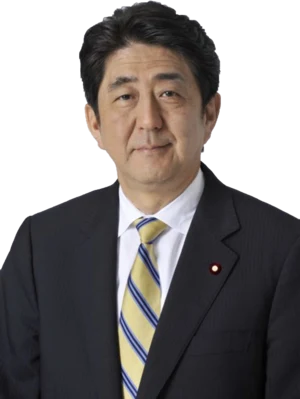- forgotpw : Tldr; no
- 40
- 30
Last week, Prime Minister Lee Hsien Loong expressed hope that more couples would embark on parenthood and hinted that more government support for families aspiring to have children is on the way. Still, he noted that couples will ultimately decide whether to have kids for their own reasons. In a three-part special series this week, TODAY explores what Singapore can do to be a truly family-friendly society that can nudge couples who are on the fence and better support those who already want kids.
Singapore's total fertility rate (TFR) has stayed well below the replacement rate of 2.1 for years, hitting a historic low of 1.04 in 2022 despite hefty investments and policy changes by the Government to encourage parenthood
Five young Singaporeans interviewed by TODAY said a major deterrent to having kids is the financial and emotional burden of raising a child in Singapore today
This includes concerns about lifestyle changes, and raising children amid the anxiety of climate change and the hyper-competitive nature of Singaporean parenting
Experts said that easing the pressures of modern work life and parenting could create a more family-friendly home for those who do want more children or are on the fence
In the meantime, the Government should continue in its current efforts and incentives for parents, as a comprehensive basket of policies and support is key, experts added
SINGAPORE --- When Ms Nicole Lee got married in 2021, she and her husband knew they did not want to have children.
"With the constant turmoil going on globally, and uncertainty about how habitable the earth will be in their possible lifetime, I don't feel a desire to bring any additional lives into existence to witness such a grim future," said the 33-year-old dental surgeon.
The couple also relish the freedom and financial stability of their dual-income-no-kids (Dink) lifestyle.
"(My husband and I) both have hectic work schedules and enjoy having peace and quiet at home, the ability to pursue our interests and hobbies in our spare time and being able to travel easily," said Ms Lee.
"Perhaps these are selfish choices but it would also be unfair to the child to have parents who may resent or not be fully interested in them."
Echoing her sentiments, 24-year-old final-year undergraduate Prithpal Kaur said she is on the fence about having children, as she mulls factors such as financial stability, family support and the rising cost of living.
Ms Kaur, who is engaged and whose fiance works in the medical field, told TODAY: "Our demanding careers might keep us busy and prevent us from spending quality time as a family, so it is important to consider when is the right time to have a child."
Ms Lee and Ms Kaur's sentiments are emblematic of a broader social phenomenon: Globally, fertility rates have been on the decline for decades as young people are becoming ever more hesitant about taking on the responsibilities of parenthood.
The worldwide statistic in 1952 put an average family as having five children. By 2020, this figure had fallen to 2.4, according to a report by the World Economic Forum.
Economic development and a declining fertility go hand in hand: A report by The Economist in June last year found that the largest 15 economies of the world had fertility rates below the replacement fertility level of 2.1.
In Singapore, the total fertility rate (TFR) hit a historic low of 1.04 in 2022, declining from 1.12 in the year before.
Analysts told TODAY last year that the figure was not alarming because it had been the Year of the Tiger when birth rates traditionally plunge. They added that they expected the TFR to climb in 2024, which is the Year of the Dragon. This is traditionally a time when birth rates in Singapore tend to jump, because it is seen as an auspicious year for some Chinese families who go by the horoscope that is linked to the Chinese lunar calendar.
Nevertheless, for years, Singapore's TFR has been well below the replacement rate, or the rate in which each generation replaces itself.
This trend has persisted despite hefty investments and policy changes to encourage parenthood, and also despite young people saying they want kids.
A poll by the Institute of Policy Studies (IPS) in 2023 found that 76 per cent of youths aged 21 to 34 who were married or dating hoped to have children in the future, while an earlier survey in 2021 by the Prime Minister's Office (PMO) found that 92 per cent of married respondents wanted two or more children, but only half of them had achieved that.
TODAY's interviews with young people and experts found that these desires often get overwhelmed by anything from the anxiety of climate change to the hyper-competitive nature of Singaporean parenting.
Experts say it is unlikely that much, if anything, can be done to change the minds of those who are certain they do not want kids.
But if Singapore figures out a way to ease the pressures of modern work life and parenting, it could encourage those who are on the fence, and create a more family-friendly home for those who do want more children.
MORE BABIES PLEASE
Since the 1980s, the Singapore Government has done a lot to try to boost the fertility rate through measures such as lengthening maternity leave, introducing paternity leave, tax cuts for parents, and the Baby Bonus, which offers cash handouts for every baby born.
Most recently in Budget 2023, the Government announced several expansions to existing schemes, including an enhanced Baby Bonus, the doubling of Government-paid paternity leave, and plans to expand childminding service options.
Singapore is not alone among developed nations in these valiant efforts.
France is often hailed as a success story for reversing its slowing TFR --- at least for a while. After two decades of decline, the country's fertility rate started picking up again in the late 1990s before hitting 2.03 in 2010, according to data from its National Institute of Statistics and Economic Studies (Insee).
But its TFR began slowing again in 2011 and fell to 1.68 last year, though it is still among the highest in Europe today.
Other developed nations around the world have experimented with various combinations of parental leave, social reform, financial support and expanded care services but they, too, have had dismal results.
Does this mean that existing government policies to encourage parenthood are a waste of resources? Not at all, say experts.
Despite the lack of success that governments have had in turning around their TFR, experts say it certainly does not mean that Singapore authorities should give up trying to encourage parenthood or stop offering incentives to parents.
"There is no one-size-fits-all solution. More importantly, government support should be all encompassing rather than adopting a narrow focus," said Associate Professor Kang Soon-Hock, who is vice-dean and head of Behavioural Science Core at the Singapore University of Social Sciences.
Beyond financial support however, these policies would do well to also focus on cultural and lifestyle changes that would make Singapore more family-friendly, experts said.
Singapore's pro-parenthood policies do help parents, especially with costs, but cannot address the "centrality of work, career and the desire for security, comfort and social status in middle-class life," said Associate Professor Tan Ern Ser, a sociologist from the National University of Singapore (NUS).
"Moreover, while (the Government) can try to give more time for family and children (through maternity and paternity leave), it can't mitigate the demand of work life. For those doing cognitive or mental work, there is no hard boundary between work and non-work life, made worse by our digital economy," he added.
Agreeing, five young Singaporeans interviewed by TODAY said a major deterrent to having kids, or more kids, is the financial and emotional burden of raising a child in Singapore today.
"(Issues such as) changes in lifestyle, relationship with your spouse, added stress (of having children) and workplace culture can't really be solved by the current government policies," said aviation industry professional and mother of one Susie Chan, 33.
"Ultimately government policies only help to alleviate a small portion of the challenges faced," said Mrs Chan, adding that, while appreciated, they would not prompt her to have more kids.
Others feel that to be a good parent in hyper-competitive Singapore, they have to be able to afford the best possible care and education for their children, which in turn makes them feel that they should not have kids if this is out of reach.
The undergraduate Ms Kaur said she would ideally like to "provide the best" for her future child and fears not being able to compete with other, wealthier parents.
"Coming from an economically disadvantaged (background) myself, I would only want to welcome a child if I am able to fully provide for and support that child in this economy," she said.
FORGET THE 'GOOD LIFE', AIM FOR 'GOOD ENOUGH'
One step towards making Singapore a more family-friendly place is to redefine what success means, experts said.
Instead of pursuing the "good life", young Singaporeans may need to aim for a "good enough" life, which would allow them to be less bound by work and economic aspirations, said NUS' Assoc Prof Tan.
"The desired outcomes would be having a sound mind, healthy body, happy family life, and a manageable work life. I believe that a 'good enough' life would paradoxically also enable one to be productive, through working smart, and creative," he added.
Singaporeans also need to be less demanding on themselves as parents, experts said.
Dr Tan Poh Lin, a senior research fellow at IPS, said: "If we have a pyramid-shaped social hierarchy, with a relatively small class of individuals at the top who go through a very selective process for scarce elite positions in which they are heavily rewarded, and a large bottom class of individuals who are socially and economically less well off and secure, then no matter what birth incentives you put in place, parents will always have a strong incentive to choose quality over quantity."
Parents may choose to have just one child, but ensure that he or she is "given all the advantages of life", she added.
"In other words, the stakes at play in our educational, labour market and social systems determine how competitive parents will need to be."
To help Singaporeans overcome such a mindset, having more room for risk-taking and recovery from failure, especially in the early stages of life where parents are held primarily responsible for their children's success, could be key, said Dr Tan.
"If going to the right primary school means that one has a much better chance at receiving an elite secondary and tertiary education, and conversely if being identified as weak in some academic domains means that these chances are much lower, then parents have no choice but to give it their all," he said.
Instead of rewarding outcomes based on a "unidimensional metric", society could focus on rewarding effort to allow individuals room for exploration of their strengths and weaknesses, likes and dislikes, which can result in better job matches, prevent worker burnout and improve mental well-being, he added.
"For example, instead of ranking students narrowly on how their assignments turned out, rewards could be based on the extent to which they went the extra mile on their own, and what they have learned in the process."
Of course, societal change cannot happen through individual effort alone. Employers and policymakers have to help create a more pro-family culture that enables Singaporeans to prioritise family life over work life if that is what they want, said Assoc Prof Tan from NUS.
This goes beyond a company's human resource policies to encompass shifts in employers' formal, informal, or unspoken expectations, he added.
"Would employers or bosses be willing to set more reasonable key performance indicators (KPIs), thereby allowing employees to have more family time, without having to worry about work?" he asked.
"The fact is, with tough KPIs, one could be on leave or on family holiday and still be thinking about work, which means being physically present, but mentally absent."
Meanwhile, the Government could offer support by looking at ways to improve the quality of life for middle class families, said Associate Professor Daniel Goh, a sociologist at NUS.
Noting that poverty actually allows for a greater TFR because families have more babies as an insurance against future poverty, Assoc Prof Goh added that the considerations for middle class families are different.
"As you go more and more middle class, you tend not to have babies because you have other aspirations and you start to balance things, you start to consider the costs of having a baby," he said.
So, providing more childcare centres, affordable housing and education could nudge couples to have children by helping them realise that the cost of having a child in an already-good environment is low, and their quality of life would not be compromised as a result of having kids, said Assoc Prof Goh.
He also highlighted the importance of speaking with young women specifically to understand their concerns about motherhood.
"Find out the diversity of perspectives and what are their considerations (around whether to have kids or not), and then start to design policies to mitigate the decline of TFR along those lines," he added.
Ms Lee --- who echoed the thoughts of experts, that there is no point in trying to change the minds of couples who do not want to have children --- said: "I think it is good to give as much support as possible to those who want to have more children, especially since it is so challenging in this day and age. Policies should target those who want children but are hindered by limited resources.
"As for those like me who prefer to be Dink, I believe it should be recognised as a valid way of life and we still contribute to society in our own ways."
- 21
- 31
The Assurance Package will be increased by S$1.9 billion in Budget 2024
This is to help households handle the cost of living amid economic uncertainties
The package includes cash handouts, utility rebates and more
The enhancements to the package are also designed to ensure lower-income families and larger households get more support
SINGAPORE --- To better support households with the cost of living, some 2.5 million Singaporeans age 21 and above will receive cash payouts of between S$200 and S$400 in September 2024.
Finance Minister Lawrence Wong said on Friday (Feb 16) that these payouts are part of a S$1.9 billion enhancement to the Assurance Package.
The package was first announced in 2020 as a S$6 billion raft of measures to cushion the impact of the Goods and Services Tax (GST) hike. It was topped up by S$640 million at Budget 2022, and S$3 billion in Budget 2023.
Beyond the Assurance Package, Mr Wong said the GST Voucher Fund will be raised by S$6 billion to "permanently defray GST expense for lower and middle-income households".
WHY IT MATTERS
Mr Wong, who is also the Deputy Prime Minister, noted in his Budget 2024 speech that while inflation started to moderate last year, economic growth also slowed, resulting in declining real incomes.
"While we expect the situation to improve this year, there are uncertainties in the outlook," he added.
The Assurance Package is designed to ensure that lower-income families and larger households — particularly those with seniors and children — get more support, he said.
HOW SINGAPOREANS WILL BENEFIT
Singaporeans aged 21 and above this year will receive a one-off cash support of between $200 and $400 in September 2024.
To qualify, they must have an assessable income of not more than S$100,000, and not own more than one property.
Those who earn less than S$22,000 will receive S$400, while those who earn between S$22,000 and S$34,000 will earn S$300.
Singaporeans who earn between S$34,000 and S$100,000 will receive S$200.
About 2.5 million Singaporeans will receive the cash payment.
CDC Vouchers
All Singaporean households will receive an additional S$600 in CDC vouchers, half of which will be disbursed in end-June, and the other half in January 2025.
The vouchers will be split equally for spending at participating merchants or hawkers, and at supermarkets.
This will benefit about 1.4 million Singaporean households.
U-Save rebates
Housing and Development Board (HDB) households will receive an extra U-Save rebate this year.
HDB households whose members do not own more than one property will receive 2.5 times the amount of regular GST voucher U-Save rebates in this financial year.
Depending on the HDB flat type, households will receive up to S$950 in U-Save rebates from the enhancements in this Budget, GST Voucher U-save and Assurance Package U-Save.
The rebates will be given out in April, July and October this year, and in January 2025.
About 950,000 Singaporean households are expected to receive these rebates.
S&CC rebates
An additional one-off Service and Conservancy Charges (S&CC) rebate will be given to eligible HDB households.
Households living in one- and two-room HDB flats will receive four months of such rebates, while those living in three- and four-room flats will receive three months of the rebates.
Those in larger flats will receive two to 2.5 months of S&CC rebates.
Similar to the U-Save rebates, the S&CC rebate will be given out in four tranches — April, July and October this year, and in January 2025.
MediSave bonus
Aside from the Assurance Package and GST Voucher enhancements, Mr Wong also announced Singaporeans aged 21 to 50 will receive a one-time MediSave bonus of up to S$300.
The amount received will be tiered based on the year of the individual's birth, the number of property they own and the annual value of their residence.
Singaporeans born in 1974 to 1983 will receive a bonus of S$300 if they own less than one property, and the property's annual value is less than S$25,000.
Those born between 1984 and 2003 will receive S$200 if they own less than one property, and the property's annual value is less than S$25,000.
Singaporeans with more than one property or who own a property with an annual value of more than S$25,000 will receive S$100 less than their counterparts who were born in the same year.
About 1.4 million Singaporeans will benefit from the bonus, which will help them cover smaller medical bills and insurance premiums, said Mr Wong.
The bonus will cost the Government S$0.3 billion.
LifeSG credits for servicemen
All past and present national servicemen will receive S$200 in LifeSG credits in November 2024.
National servicemen enlisting by Dec 31 this year will be eligible for the credits as well.
These credits can be used to buy goods and services at physical and online merchants offering PayNow UEN QR or Nets QR payment, or both, using the LifeSG mobile application.
This will cost the Government S$240 million and benefit 1.2 million national servicemen.
"I hope this will go some way in expressing our appreciation and gratitude to our national servicemen as well as their families for all that they have done, and continue to do for our country," Mr Wong said.
Tax Rebates
Singaporeans will receive a personal income tax rebate of 50 per cent for the Year of Assessment 2024.
This rebate will be capped at S$200 “so that the benefits go mostly to our middle-income workers”, said Mr Wong.
The rebate will cost the Government S$350 million.
Those with dependants will also find dependant-related relief schemes easier to attain, Mr Wong said.
From the Year of Assessment 2025, the annual dependant income threshold will be increased from S$4,000 to S$8,000.
This means that under the new threshold, a parent or caregiver can claim dependant-related tax relief as long as their dependents earn an annual income of S$8,000 or less.
- 105
- 108
Maybe 2022 was the outlier with "patchy rain" (still rain I guess) but after just getting caught in the fricking heavy rain (the big-butt gay umbrella I was using didn't work because the rain was relentless) I seemed to remember how every Christmas was the same shitty weather every year so I decided to check if I was right and 
Maybe if we had freezing weather I'd be seeing snow here 
Source: https://www.worldweatheronline.com/singapore-weather-history/sg.aspx
I know the end of the year is the monsoon season here but that's still quite the record
And I left my home when it was so sunny and hot out  fricking tropical weather
fricking tropical weather
Anyway have a blessed and happy Christmas dramatards, just ranting because I'm soaked
- 41
- 32
- 4
- 12
PoV: You just got visited by the Patron Saint of Neoliberalism
— browncel (Octavian ka Parivar) (@hindookissinger) April 23, 2024
Economy? Liberalized.
Drug dealers? Executed.
Immigrants? Assimilated.
Fertility? ...Crashed. pic.twitter.com/mdwtsgf8eK
- 10
- 21
maybe if I utter the correct incantations the baizuos  would see me as one of their own
would see me as one of their own 
- 24
- 32
it's this  again
again
On 11 Feb, her 32-year-old male assistant confirmed with the authorities that they had staged the attack for the stream, noted China Times in a separate report.
The assistant dressed up as a middle-aged lady and threw eggs at the streamer while she was ‘live'.

@cyberdick latest
 from your favourite foid
from your favourite foid 
- 16
- 18





 cute twink
cute twink




 Majulah Singapura!
Majulah Singapura! 

















 Anarcho-Syndicalist-Trotskyist-Stalinist Cuban Revolutionary
Anarcho-Syndicalist-Trotskyist-Stalinist Cuban Revolutionary 
 It has rained heavily every Christmas in Singapore for at least the past decade (I checked)
It has rained heavily every Christmas in Singapore for at least the past decade (I checked) 





















 Hypermuscular Hindu Beast
Hypermuscular Hindu Beast 












 gets dunked on by daily show presenter
gets dunked on by daily show presenter 

 admits egg attack in Taiwan was staged, told by police
admits egg attack in Taiwan was staged, told by police  to apologise
to apologise 






](/images/16632652211893444.webp)